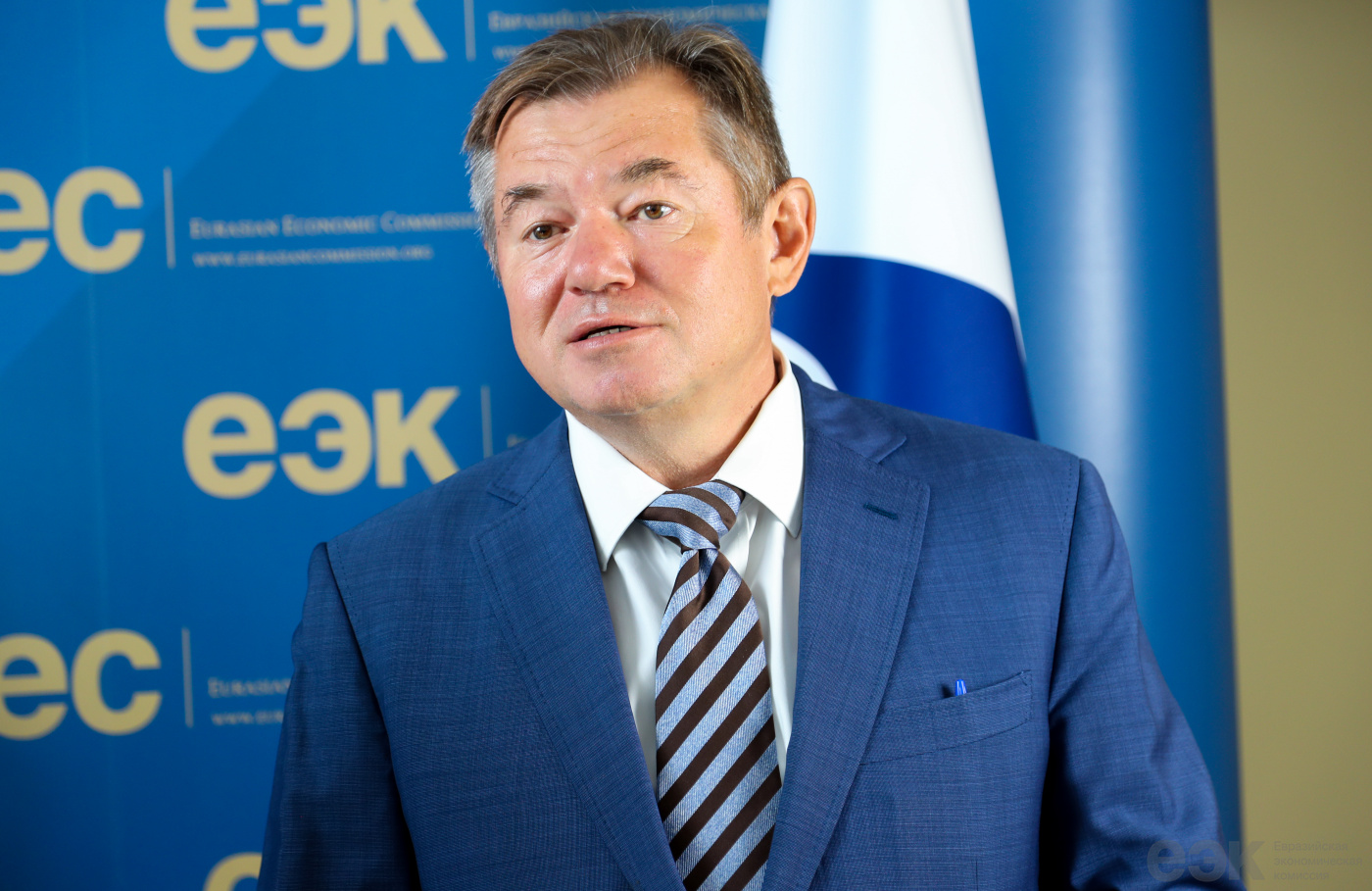News
26.10.2020
Sergei Glazyev proposed shaping a Eurasian monetary and financial system
Sergei Glazyev, Minister in charge of Integration and Macroeconomics of the Eurasian Economic Commission, put forward his proposals on creating the Eurasian Economic Union's national currency-based monetary and financial system during the session dedicated to the prospects for extending the EAEU-China financial cooperation at "Coupling the EAEU and the Chinese Belt and Road Initiative" online forum being held on October 26.
Sergei Glazyev, Minister in charge of
Integration and Macroeconomics of the Eurasian Economic Commission, put forward
his proposals on creating the Eurasian Economic Union's national currency-based
monetary and financial system during the session dedicated to the prospects for
extending the EAEU-China financial cooperation at "Coupling the EAEU and
the Chinese Belt and Road Initiative" online forum being held on October
26.
As Sergei Glazyev has stressed, the EAEU is working to
switch to mutual settlements in national currencies, but their share still
remains quite unpretentious: it is about 50% within the Union and approx. 15%
in settlements with China.
"Russia and China have created their own payment systems and a system of
electronic information exchange between banks, but economic activity
participants are still very inactive in using these infrastructure elements and
still work in foreign currencies," Sergei Glazyev noted. "I believe that we should
radically reverse the situation and create our own Eurasian monetary and
financial system. It would insure us against risks and would be reliable,
transparent, convenient and efficient and would not be burden-some for economic
activity participants."
Furthermore, he has put forward his proposals on how to achieve this result.
According to him, it is primarily important to stabilize the exchange rates of
national currencies. "It is long past time to sign an agreement between
the EAEU States to ensure stabilizing exchange rates and to create a
"currency snake" similar to the one existed in the European Union
countries," Sergei Glazyev said.
The second direction is forming the Eurasian exchanges and pricing mechanisms.
This direction has been contemplated in the draft Strategic Directions for
Developing the Eurasian Economic Integration until 2025, approved for the most
part by the Heads of the Union States.
The third direction is granting advantages for settling in national currencies.
According to Sergei Glazyev, the CIS Interstate Bank could be instrumental in
supporting foreign exchange transactions with lower rates than those prescribed
by commercial banks.
Moreover, Sergei Glazyev has proposed not to extend foreign exchange control to
national currency settlements and to address matters related to crediting and
financing mutual trade and joint investments.
"I hope we will succeed in perfecting this as part of implementing the
Strategy-2025. Drafting joint development programs, joint infrastructure projects,
forming investment projects that are symbols of the Eurasian integration, and
expanding cooperative ties in manufacturing are among the document directions
already approved. All this requires creating powerful sources of long-term
credit facilities," the EEC Minister concluded.






